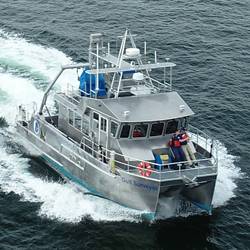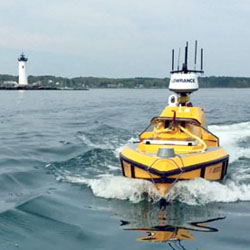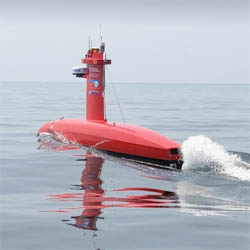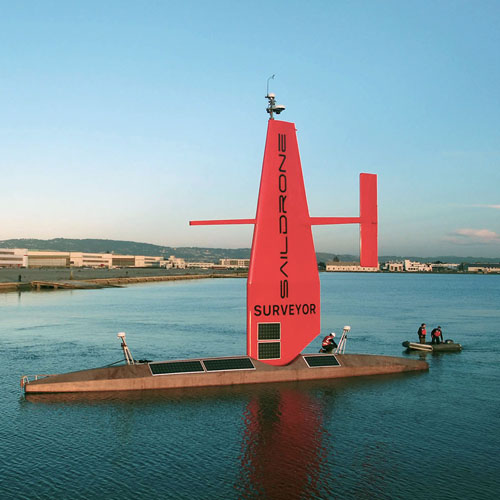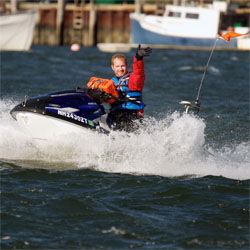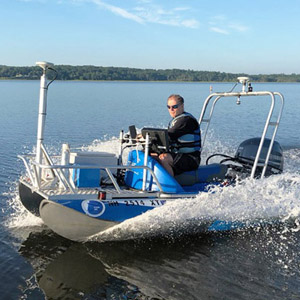Research Vessels
For many years, the Center operated two dedicated research vessels, the 40-foot R/V Coastal Surveyor (owned and operated by the Center) and the 34-foot R/V Cocheco (NOAA-owned, and maintained and operated by the Center). When it became increasingly clear that our workhorse survey vessel, the R/V Coastal Surveyor, was reaching the limit of its useable service life and that the R/V Cocheco was not a suitable candidate to take over the role as a bathymetric sonar-mapping platform, we embarked, in 2015, on the acquisition of a new vessel with versatility for instrument deployment, and providing better cabin space to house students, researchers, and navigation crew. We took delivery of this new vessel—the R/V Gulf Surveyor—in April 2016 and have been successfully using her since. Given the success and utility of the R/V Gulf Surveyor, the R/V Cocheco was retired in 2019.
The RVGS operates under all appropriate national and international maritime rules as well as the appropriate NOAA small boat rules and those of the University of New Hampshire. The vessel carries life rafts and EPIRB (Emergency Position Indicating Radio Beacons), electronic navigation systems based on GPS, and radar. Safety briefings are given to all crew, students, and scientists. Random man-overboard and emergency towing exercises are performed throughout the operating season. The Center employs a permanent captain and a permanent first mate.
In addition to the Gulf Surveyor, the Center also has a shallow water mapping research vessel, the twin-hulled catamaran Zego Boat, and a fleet of autonomous surface vehicles, notably the ASV BEN and the DriX.


